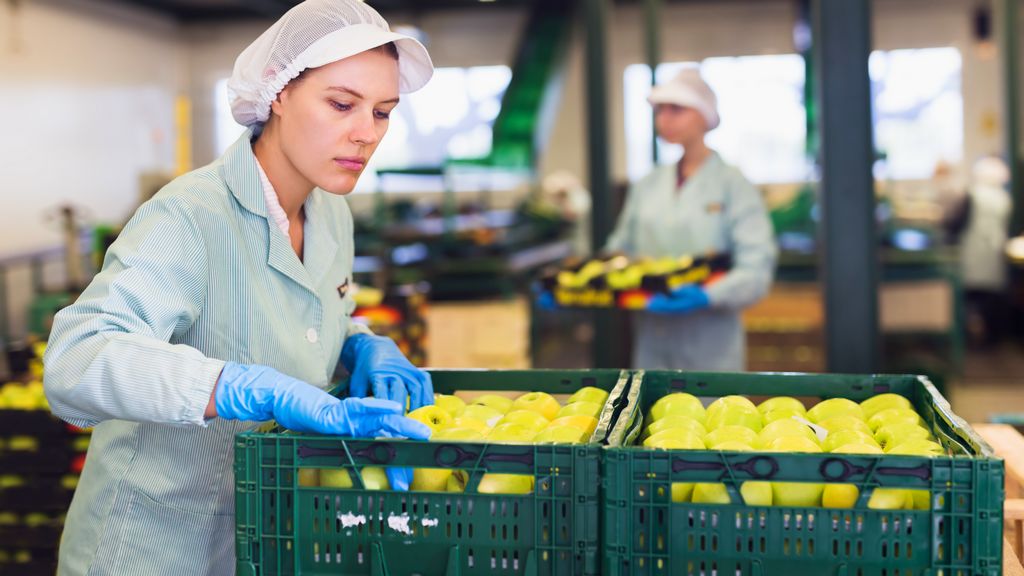Food packing jobs are crucial in the food industry, ensuring that products are packaged correctly for distribution and sale. In Italy, known for its rich culinary traditions and diverse food products, these jobs play a vital role in maintaining quality and safety standards. This overview explores the types of food packing jobs available, required skills, work environments, salary expectations, and career advancement opportunities in Italy.
Types of Food Packing Jobs
- General Food Packing: Involves packing various food items, such as snacks, frozen foods, and canned goods. Workers may be responsible for sorting, weighing, and labeling products.
- Specialized Packing: Positions that focus on specific products, like cheese, wine, or pasta. These roles often require knowledge of the product and specific packing techniques.
- Quality Control Inspector: Some food packing jobs include quality control duties, ensuring that products meet safety and quality standards before packaging.
- Warehouse Operative: Involves not just packing but also managing inventory, organizing storage, and preparing products for shipment.
- Machine Operator: Operating and maintaining packing machinery in larger food production facilities. This role requires technical skills and knowledge of food safety practices.
Skills Required
To succeed in food packing jobs in Italy, candidates should possess several essential skills:
- Attention to Detail: Ensuring that packaging meets specific standards and that products are packed correctly.
- Physical Stamina: Many packing jobs require standing for long periods and lifting heavy boxes, so physical fitness is important.
- Basic Math Skills: Useful for weighing and measuring products accurately.
- Teamwork: Ability to work collaboratively in a fast-paced environment with other team members.
- Knowledge of Food Safety Standards: Familiarity with hygiene and safety regulations in the food industry is crucial.
Work Environment
Food packing jobs can be found in various settings:
- Food Manufacturing Facilities: Large factories where food products are produced and packed for distribution.
- Warehouses: Operations that focus on storing and packing products for retailers or distributors.
- Grocery Stores and Markets: Some positions may involve packing products directly for sale in retail environments.
- Remote Work: Although less common, some food-related companies offer remote opportunities in logistics and inventory management.
Salary Overview for Food Packing Jobs in Italy
Salaries for food packing jobs in Italy can vary based on factors such as experience, location, and specific job responsibilities. Here’s a general breakdown:
1. Entry-Level Positions
- Salary Range: €1,200 to €1,600 per month
- Description: These positions often require minimal experience and involve basic packing tasks.
2. Mid-Level Positions
- Salary Range: €1,800 to €2,200 per month
- Description: With a few years of experience, workers may take on more responsibilities, including quality control and specialized packing.
3. Specialized Roles
- Salary Range: €2,200 to €2,800 per month
- Description: Positions that require specific skills or knowledge, such as quality control inspectors or machine operators, tend to offer higher salaries.
4. Supervisory and Management Positions
- Salary Range: €2,800 to €3,500+ per month
- Description: Experienced workers who move into supervisory or management roles can command higher salaries due to their increased responsibilities.
5. Overtime and Bonuses
- Additional Earnings: Many packing jobs offer overtime pay, particularly during peak seasons, which can significantly increase overall earnings.
Career Advancement
Food packing jobs can lead to various career advancement opportunities:
- Supervisory Roles: Experienced packers may advance to supervisory or team leader positions, overseeing a group of workers.
- Quality Control Manager: With additional training, workers can move into quality control roles, ensuring compliance with safety standards.
- Warehouse Management: Opportunities to transition into warehouse management or logistics roles, which involve more responsibility and higher pay.
- Specialization: Workers can specialize in areas like food safety, supply chain management, or production planning, leading to further career options.

